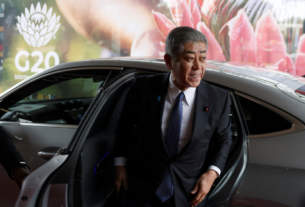In today’s digital landscape, artificial intelligence (AI) is emerging as both a powerful ally and a formidable challenge for peacebuilders and human rights advocates. While AI presents innovative solutions to persistent issues, it also introduces complex ethical and practical dilemmas that must be navigated with care.
A Double-Edged Sword
The swift evolution of AI has led to transformative shifts across various sectors, including peacebuilding and human rights advocacy. From analyzing conflict data to forecasting violence, AI-driven tools are changing the way these challenges are tackled.
One notable advantage of AI is its capacity to process enormous volumes of data with unparalleled speed and precision. This ability enables human rights organizations to spot patterns of abuse, monitor potential violations, and hold offenders accountable more efficiently. For example, machine learning algorithms can scrutinize satellite images to uncover mass graves or damage caused by conflict, offering vital evidence for investigations.
Nevertheless, these benefits come with a rising concern regarding the potential misuse of AI. Authoritarian governments and non-state actors are increasingly leveraging AI technologies for surveillance, disinformation efforts, and targeted oppression. Such actions pose serious threats to those dedicated to fostering peace and safeguarding human rights.
The Ethical Quandary
The ethical implications of using AI in peacebuilding and human rights advocacy are significant. Critics point out that the widespread use of AI tools could unintentionally reinforce existing biases found in the data used to train these systems. For instance, facial recognition technology, commonly employed in monitoring, has faced criticism for its inaccuracies and discriminatory tendencies, particularly towards marginalized communities.
Furthermore, the lack of transparency in AI-driven decision-making raises concerns about accountability. When algorithms make decisions without human oversight, it can erode trust in these systems, especially in sensitive areas like conflict resolution and human rights protection.
Empowering Peacebuilders with AI
Despite these challenges, many organizations are discovering ways to leverage AI for positive outcomes. By incorporating AI into their efforts, peacebuilders can obtain valuable insights that shape their strategies and interventions.
A notable application is the use of predictive analytics to spot early warning signs of violence or instability. AI systems can analyze social media posts, news articles, and other sources to identify patterns that suggest rising tensions, allowing for timely preventive actions.
Additionally, AI-driven platforms are being created to promote dialogue between conflicting parties. These platforms utilize natural language processing to facilitate discussions and pinpoint common ground, encouraging understanding and cooperation.
Safeguarding Human Rights in the AI Era
To tackle the risks posed by AI, experts stress the need for strong regulatory frameworks and ethical guidelines. These initiatives should focus on transparency, accountability, and inclusivity in the creation and use of AI technologies.
It’s also vital for governments, tech companies, and civil society organizations to collaborate. By joining forces, these stakeholders can ensure that AI tools are developed and implemented in ways that respect human rights.
Moreover, building capacity is crucial to empower peacebuilders and human rights defenders with the necessary skills to navigate the complexities of AI. Training programs can help these professionals grasp the capabilities and limitations of AI technologies, allowing them to use these tools effectively and responsibly.
A Call for Global Action
As AI continues to advance, its effects on peacebuilding and human rights advocacy will remain a significant concern. The international community must take decisive action to tackle these challenges, promoting a collaborative approach that maximizes the advantages of AI while minimizing its risks.
As a prominent advocate for ethical AI use puts it, “Technology is not inherently good or bad—it is how we choose to use it that determines its impact.” For peacebuilders and human rights defenders, this means finding a careful balance between harnessing AI’s potential and protecting the values they aim to uphold.




